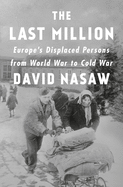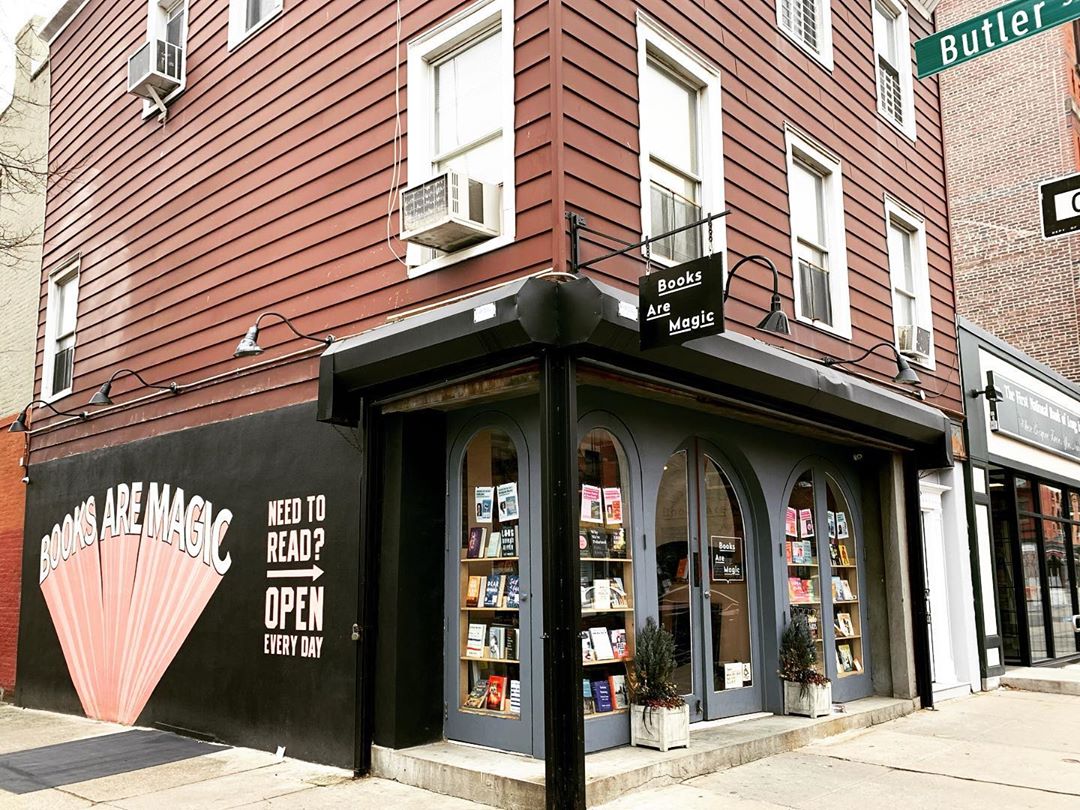 In Brooklyn, N.Y., Books Are Magic has been open for browsing since July 6. Co-owner Michael Fusco-Straub explained that they waited until phase 3 of New York City's reopening plan, just to make sure everything was on track and they weren't about to "backslide back into a shutdown."
In Brooklyn, N.Y., Books Are Magic has been open for browsing since July 6. Co-owner Michael Fusco-Straub explained that they waited until phase 3 of New York City's reopening plan, just to make sure everything was on track and they weren't about to "backslide back into a shutdown."
Between shutting down in March and reopening in July, the store was essentially a distribution center, and Fusco-Straub said it took a lot of work to clean up the mess and "put everything back together." During the shutdown, he added, Books Are Magic did not lay off anyone and all staff was paid as if they were still coming in for their normal hours. Most of the employees were working from home, doing marketing and events-related things or helping with customer-service issues that arose with so many online orders. For staff members who were coming into the store, Fusco-Straub gave them rides to and from work and provided lunch.
The week of the shutdown, Books Are Magic began selling shirts with the phrase "Stay Safe! Read Books" printed on them. Fifty percent of the proceeds of those shirts went to the Book Industry Charitable Foundation and the other 50% went to Books Are Magic employees. The store has sold more than 1,200 of those shirts so far.
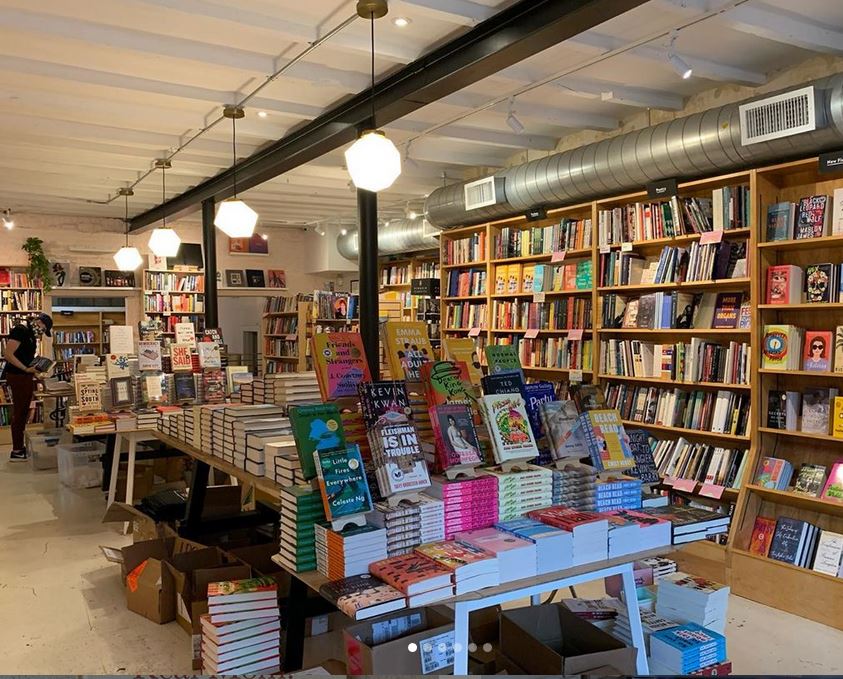 Before reopening, Fusco-Straub and the Books Are Magic team put in plexiglass shields in front of the registers. Masks are mandatory, gloves and hand sanitizer are "everywhere," and capacity has been reduced to allow for better distancing. Employees also have an additional 15-minute break to give them more time off the sales floor. Mask compliance, Fusco-Straub continued, has not been an issue at all.
Before reopening, Fusco-Straub and the Books Are Magic team put in plexiglass shields in front of the registers. Masks are mandatory, gloves and hand sanitizer are "everywhere," and capacity has been reduced to allow for better distancing. Employees also have an additional 15-minute break to give them more time off the sales floor. Mask compliance, Fusco-Straub continued, has not been an issue at all.
Like many stores around the country, Books Are Magic saw a huge surge in sales of antiracist books and books by Black authors in late May and early June. The store made lists of antiracist titles for children and adults but experienced some supply issues with particular books. At the peak, Fusco-Straub said, the store was receiving hundreds of orders per day, which was sometimes a challenge.
In response to the protests against police brutality and systemic racism that emerged across the country, Books Are Magic has done two different matching donation campaigns. In the first round, the store raised $15,000 for organizations such as the F2L Fund, the Let Us Breathe Fund and the Emergency Release Fund.
The second campaign is ongoing, and the store is matching up to $10,000 in donations to organizations like the Equal Justice Initiative, the NAACP Legal Defense Fund, the Prisoners' Legal Service of New York and more. And, through Labor Day, the store is donating 20% of proceeds from sales of all the books on its antiracism list to the Antiracist Research & Policy Center.
---
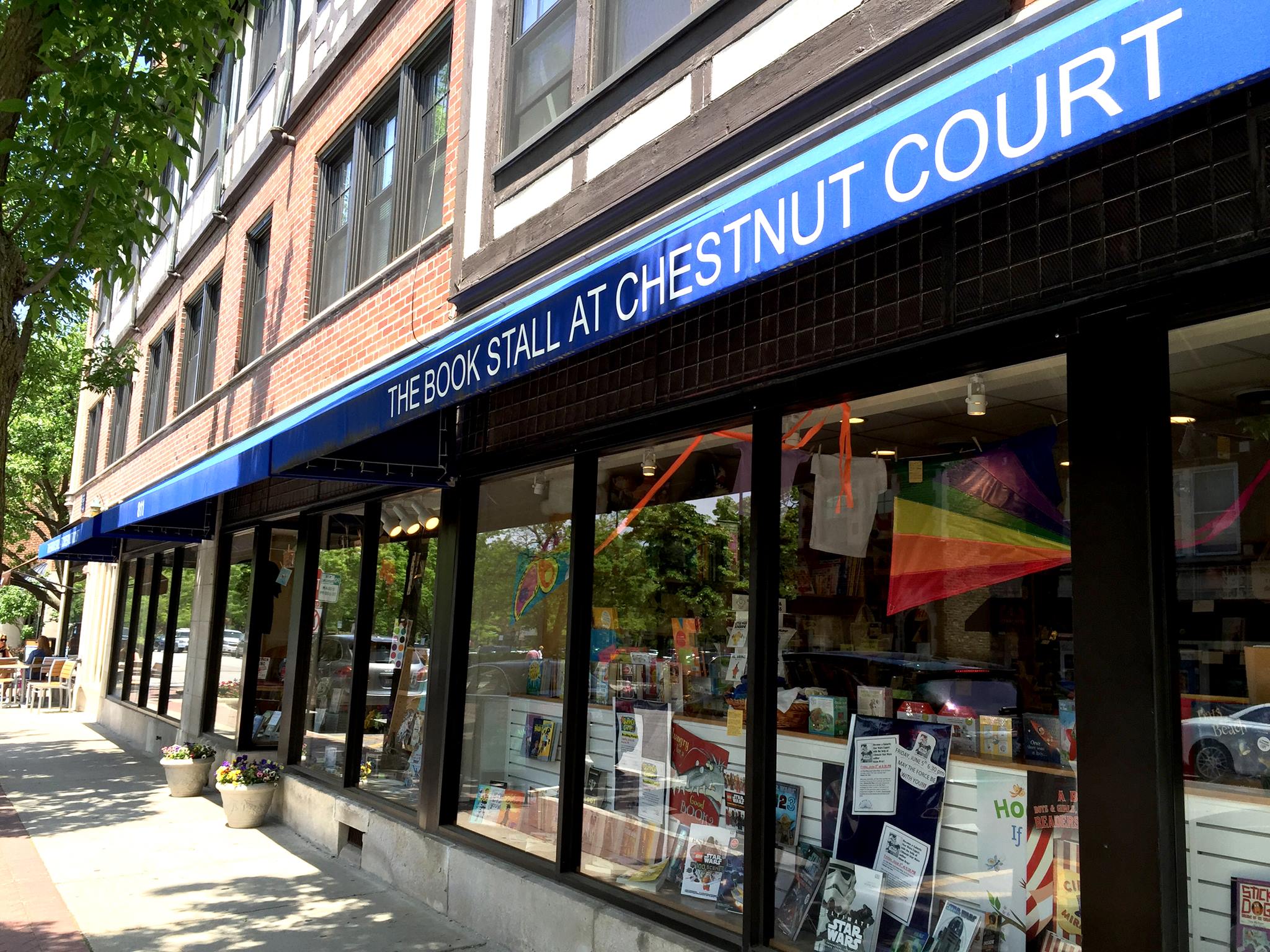 Stephanie Hochschild, owner of The Book Stall in Winnetka, Ill., reported that her store is not yet open for browsing, but she and her team are in the process of setting up a system for appointment shopping. In the meantime, the store has done a robust business with online orders, curbside pick-up and home delivery.
Stephanie Hochschild, owner of The Book Stall in Winnetka, Ill., reported that her store is not yet open for browsing, but she and her team are in the process of setting up a system for appointment shopping. In the meantime, the store has done a robust business with online orders, curbside pick-up and home delivery.
There are also a few display tables set up on the sidewalk outside the store and the front windows have been organized for "maximum browsing." A staff member, Hochschild explained, is stationed at the front door Monday-Saturday and handles those sales as well as pick-up. Customers are welcome to call the store or send an e-mail to get handselling recommendations. All of the store's events are now virtual, and Hochschild said she and her team have seen large audiences from around the country for many of those events.
To help keep the staff safe, workstations have been placed far apart from each other and are sanitized each shift. There are arrows on the ground to direct traffic and in advance of limited numbers of customers being in store, Hochschild and her team have set up plexiglass shields around display tables and are reconfiguring shelves to allow for more distancing. Generally speaking, Hochschild added, her customers are good about wearing masks, though sometimes they do need reminders about putting them on when browsing the outdoor tables. --Alex Mutter













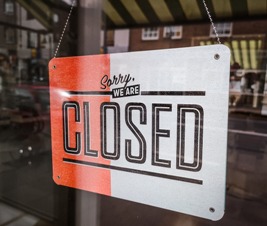 According to a recent survey of members of the Booksellers Association of the U.K. and Ireland, independent booksellers across the British Isles are facing issues involving intractable landlords and inflexible rent demands,
According to a recent survey of members of the Booksellers Association of the U.K. and Ireland, independent booksellers across the British Isles are facing issues involving intractable landlords and inflexible rent demands, 
 In Brooklyn, N.Y.,
In Brooklyn, N.Y.,  Before reopening, Fusco-Straub and the Books Are Magic team put in plexiglass shields in front of the registers. Masks are mandatory, gloves and hand sanitizer are "everywhere," and capacity has been reduced to allow for better distancing. Employees also have an additional 15-minute break to give them more time off the sales floor. Mask compliance, Fusco-Straub continued, has not been an issue at all.
Before reopening, Fusco-Straub and the Books Are Magic team put in plexiglass shields in front of the registers. Masks are mandatory, gloves and hand sanitizer are "everywhere," and capacity has been reduced to allow for better distancing. Employees also have an additional 15-minute break to give them more time off the sales floor. Mask compliance, Fusco-Straub continued, has not been an issue at all. Stephanie Hochschild, owner of
Stephanie Hochschild, owner of  Eslite, the Taiwan bookstore chain that also has stores in China and Japan, will close three more stores before the end of the year,
Eslite, the Taiwan bookstore chain that also has stores in China and Japan, will close three more stores before the end of the year, 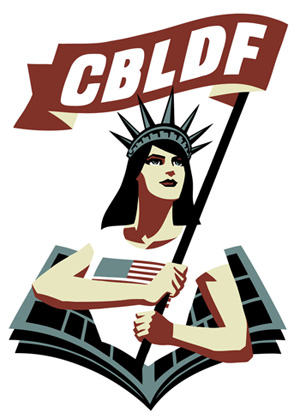 Jeff Trexler has been named interim director of the Comic Book Legal Defense Fund. A lawyer, he was formerly associate director of the Fashion Law Institute, where his work on ethics included advising government officials on sexual harassment legal reform, and he served on the board of the Museum of Comics and Cartoon Art. He also provides analysis on legal matters affecting the comics business for industry outlets.
Jeff Trexler has been named interim director of the Comic Book Legal Defense Fund. A lawyer, he was formerly associate director of the Fashion Law Institute, where his work on ethics included advising government officials on sexual harassment legal reform, and he served on the board of the Museum of Comics and Cartoon Art. He also provides analysis on legal matters affecting the comics business for industry outlets.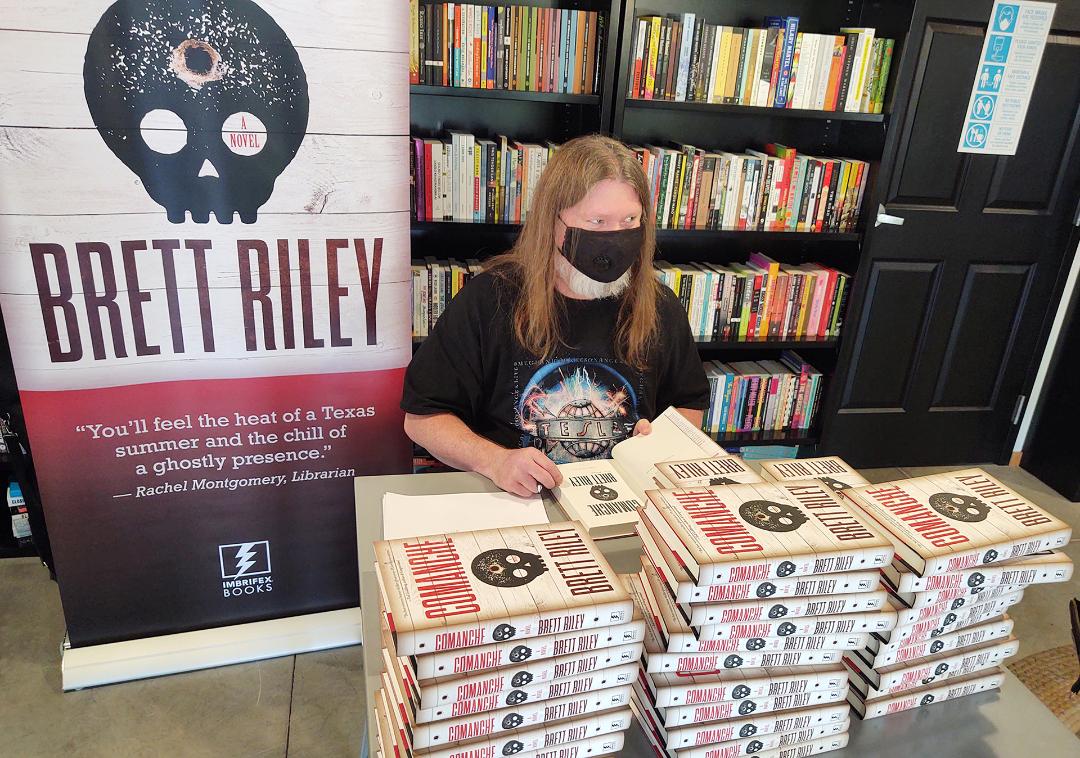 Brett Riley signed copies of his debut novel, Comanche, at the
Brett Riley signed copies of his debut novel, Comanche, at the 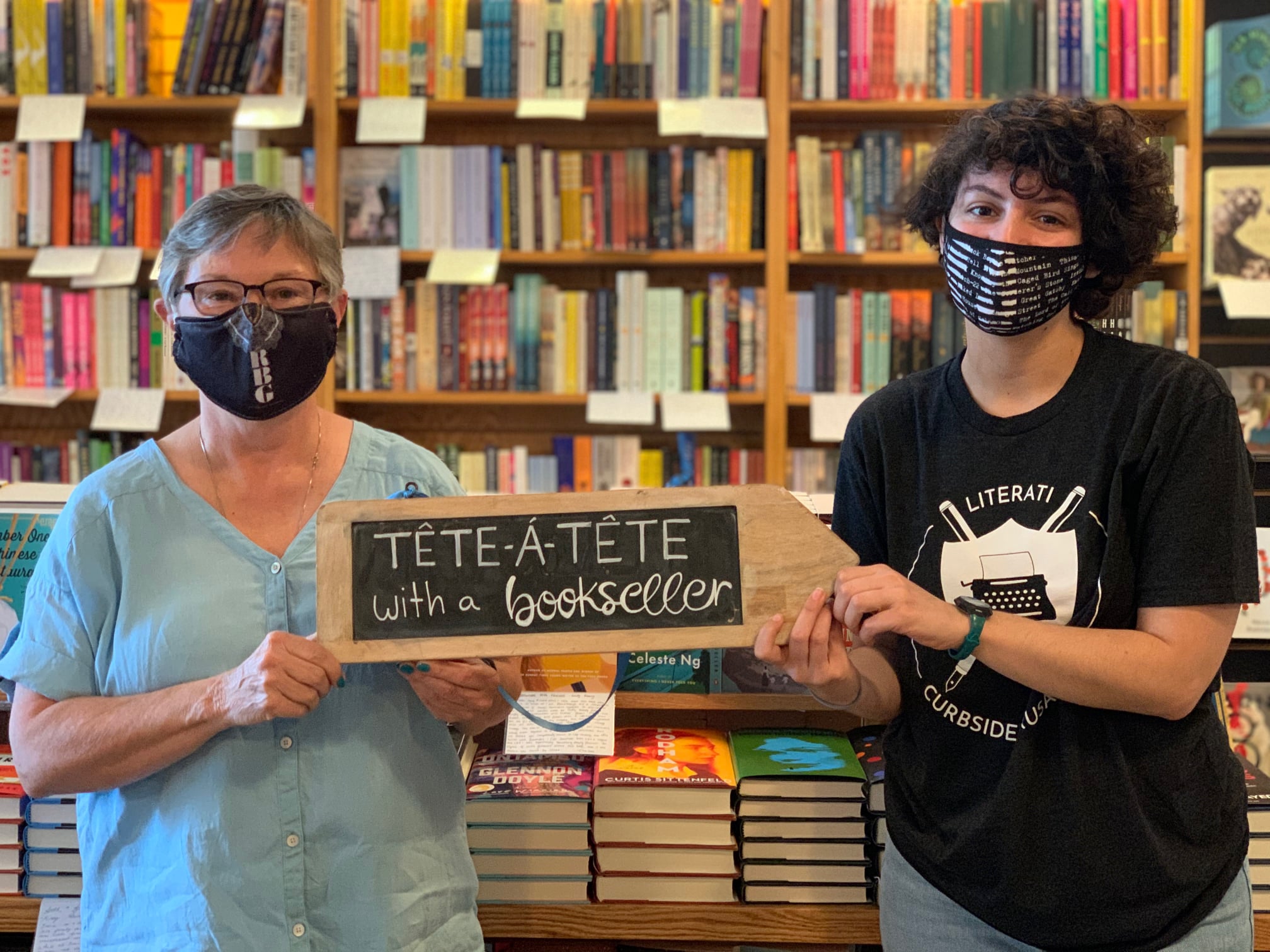 Missing the spontaneity of wandering into a bookstore and discovering something new? While the store is closed to the public,
Missing the spontaneity of wandering into a bookstore and discovering something new? While the store is closed to the public, 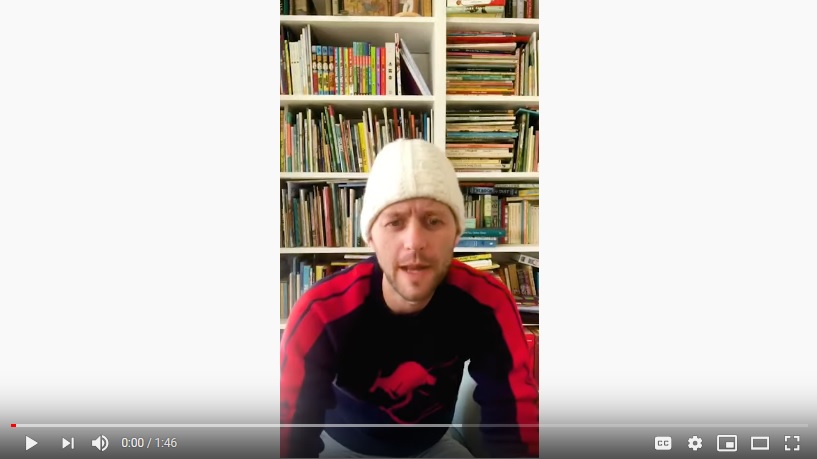 A Polar Bear in the Snow
A Polar Bear in the Snow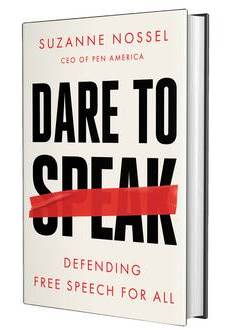
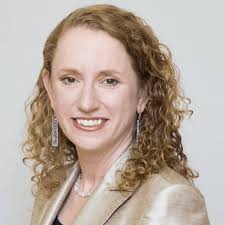
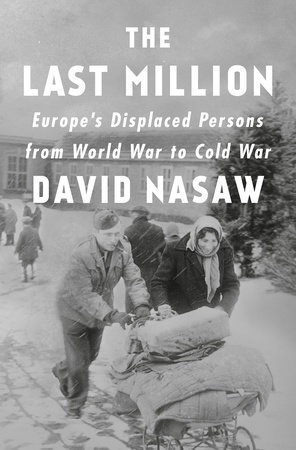 The Last Million: Europe's Displaced Persons from World War to Cold War sheds light on what to many readers will be an unfamiliar legacy of the Second World War. David Nasaw, author of sweeping biographies such as Andrew Carnegie, provides a characteristically thorough and impressively researched account of the roughly one million displaced persons who found themselves stranded in Germany after the end of the war. After millions of forced laborers and POWs were repatriated, the Allied nations overseeing chunks of war-ravaged Germany were left with the problem of those who refused repatriation or had no home to return to. These Last Million included concentration camp survivors, Eastern Europeans whose lands had been occupied or annexed by the Soviet Union, Nazi collaborators and outright war criminals. As the allied countries decided what to do with these displaced persons (DPs), they were housed in what were meant to be temporary camps that over years transformed into island communities.
The Last Million: Europe's Displaced Persons from World War to Cold War sheds light on what to many readers will be an unfamiliar legacy of the Second World War. David Nasaw, author of sweeping biographies such as Andrew Carnegie, provides a characteristically thorough and impressively researched account of the roughly one million displaced persons who found themselves stranded in Germany after the end of the war. After millions of forced laborers and POWs were repatriated, the Allied nations overseeing chunks of war-ravaged Germany were left with the problem of those who refused repatriation or had no home to return to. These Last Million included concentration camp survivors, Eastern Europeans whose lands had been occupied or annexed by the Soviet Union, Nazi collaborators and outright war criminals. As the allied countries decided what to do with these displaced persons (DPs), they were housed in what were meant to be temporary camps that over years transformed into island communities.